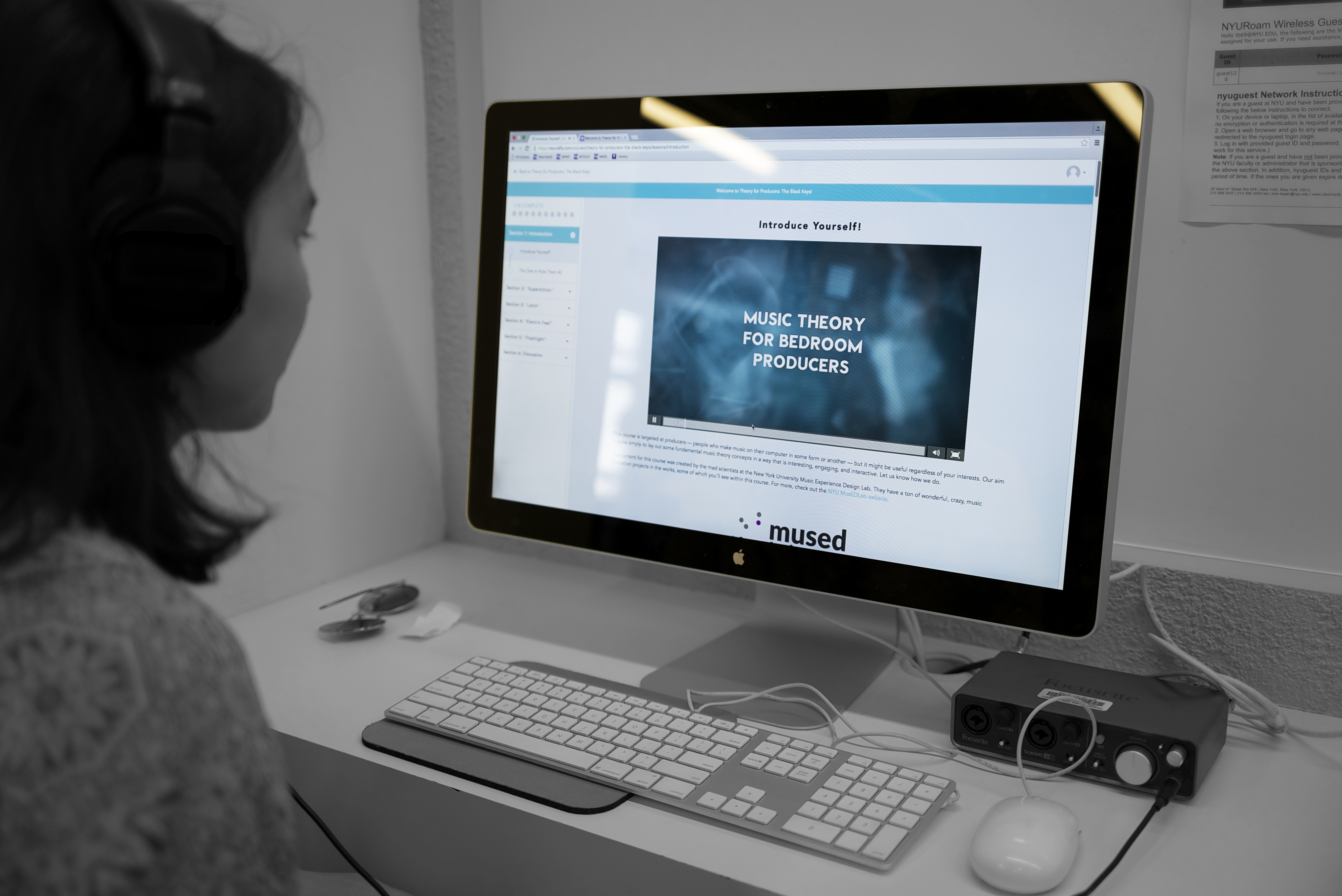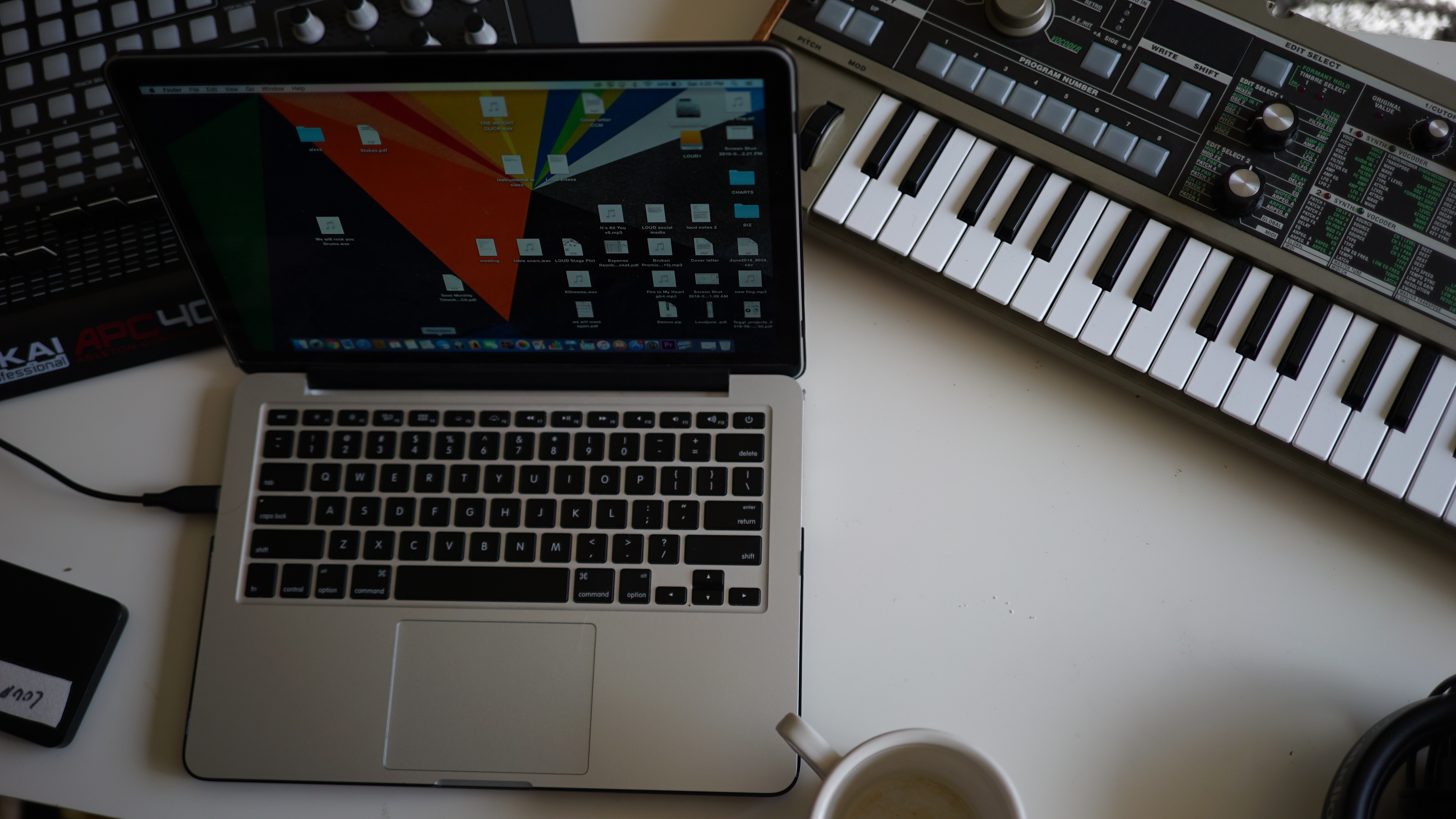
+ Combine theory, improvisation, and jazzy hip-hop, and improve your piano chops with Grammy-winner Kiefer in Kiefer: Keys, Chords, & Beats.
We all have the same 24 hours in a day, so how is it that some people manage to “make time” for their music career while others seemingly can’t?
When we talk about “making time” for something, what we’re really saying is “making it a priority.” Think about it: you may insist you don’t have time to learn how to play the harmonica, but if someone offered you an incentive of a million dollars to do it, I’ll bet you’d figure out a way to make time, wouldn’t you?
We tend to procrastinate on important tasks for our music careers not because we don’t understand their value, but because they seem so daunting that our brains tell us we can’t. Often, the hardest part is just getting started.
And when you do learn how to make those magical extra hours appear in your week by following the guide below, you’ll then need to train yourself to be fully engaged with your work so you don’t waste that precious time — which you’ll also find tried-and-true tips for in this article.
1. Identify What It Is You Want to Make More Time For
Before you attempt to make more time for your music career, you need to clearly identify what you’re working towards, as well as how you plan to use that time once you have it. Goals that feel completely overwhelming in your head will look a lot more realistic on paper when they’re broken down into actionable steps that you know you can accomplish.
Start by writing down the goals you want to reach, and then hone in on just one or two things that are top priorities for you right now. This doesn’t mean you’re permanently abandoning everything else on your list; you’ll simply be more effective if you narrow your focus. If you try to take on too much from the get-go, you’re going to spread yourself too thin and end up right back where you started. Once you get a really good handle on time management and maximizing productivity, you can move on to your other goals. Promise.
2. Find Out How You Really Spend Your Time Right Now
You’re probably familiar with the feeling of being busy all day, but when you review what you’ve actually accomplished, you’re disappointed to find that you weren’t very productive. It’s hard to tell the difference between feeling busy and being productive unless you regularly take a step back and ask yourself, “Am I only doing this to feel busy? Is there something I’m putting off that I should be doing instead right now?”
On top of that, we tend to be pretty bad at estimating how much time we really need to complete a task (or how much time we actually just spent aimlessly scrolling through Facebook), and it’s often shocking to see the reality. Use an app like Toggl to track how you spend all of your time for one week, and be honest with yourself. It’s so important to find out the real amount of time you spend on different activities so you can plan accordingly in step five below.
+ Learn production, composition, songwriting, theory, arranging, mixing, and more; whenever you want and wherever you are. Subscribe for full access!
3. Cut Out Distractions to Your Music Career
It’s way too easy to tell yourself you’re just checking your email really quick, and before you know it, you’ve been sucked into three hours of cute puppy videos and random Wikipedia pages. If you want to make sure your downtime doesn’t snowball into a massive time waster, do yourself a favor and set a timer. I’d recommend allowing yourself 10 minutes for catching up on social media or one hour of Netflix or TV per day. Make a promise to yourself that when time’s up, you’ll get right back to work.
And when you’re working, make sure you’re really working. Put your phone on silent and out of sight. Make sure your workspace is clean, organized, and distraction-free for your best chances of focus and productivity. (Much more on this in step six.)
It’s going to be tough at first, but you’ll soon learn how important it is to say no to things (and people) that aren’t moving you closer to your goals so that you have the time you need to grow your music career.
4. Automate and Delegate Whatever You Can
Take best-selling author Tim Ferriss’ advice on this one: “Never automate something that can be eliminated, and never delegate something that can be automated or streamlined. Otherwise, you waste someone else’s time instead of your own, which now wastes your hard-earned cash.”
First, ask yourself if a certain task truly needs to be done at all to help you achieve your goals. If it doesn’t, eliminate it altogether. If it does, figure out if it can be simplified in some way or automated. From there, if it’s a task that can be outsourced and frees you up to work on something more important, don’t be afraid to delegate it.
Here are just a few examples of common activities that independent musicians can automate or delegate:
- Emails (take advantage of canned responses and filters)
- Social media (schedule posts in bulk with a tool like HootSuite, automate with IFTTT, and divvy up the remaining work among bandmates if you have them)
- Public relations (if you’re ready for a music publicist and can afford one, hire one)
+ Read more on Flypaper: “How to Start Getting Your Music Licensed: Industry Insiders Share Their Secrets”
5. Respect the Calendar
Say it with me: If it’s not on the calendar, it doesn’t exist.
The best way to increase your sense of commitment to your music-career goals is to schedule specific blocks of time for them on your calendar each week, and — this is the key — treat those appointments with yourself with the same amount of respect that you’d treat an appointment with someone else.
First, schedule out your non-negotiables — those essential tasks and activities in life that you have to do no matter what. After you do this, you’ll see that you still have plenty of hours left in the week to work on your music career; you just need to make sure you use them wisely.
Decide which actionable music-career tasks you want to tackle this week, and schedule blocks of time for those tasks around your non-negotiables. If you’re not used to planning out your time like this, and you think you might need a kick in the butt, attach phone reminders to each calendar event until you build up good habits.
Two very important bonus tips that I’d like to mention here:
- Schedule in buffer time. You’ll have a better sense of how long things take if you followed the advice in step two and tracked your time for a week, but let’s face it — life happens. Meetings run late. Emergencies come up. Allow yourself about 20% longer than you think you’ll actually need for each event in your calendar, and give yourself permission to rearrange your schedule when necessary.
- Don’t sacrifice self-care. No matter how much time you manage to make for your music career, you simply won’t be able to operate at your best if you don’t take care of yourself, and you’ll eventually burn out. Getting enough sleep every night should be at the top of your list — it’s so crucial to your overall health and productivity — but make sure you also schedule things like exercise, meal time, and relaxation/recreational time as non-negotiables on your calendar, too.
6. Try Simple (Yet, Effective) Productivity Techniques
Once you’ve found the time to work towards your goals, you need to make the most of it. There are dozens of tools and techniques out there for increasing productivity, so now is the time to experiment and learn what’s most effective for you personally. To help get you started, here are a few techniques that have been game-changers for me — hopefully some of them will work for you, too:
- Pay attention to the time of day that you feel most productive, alert, and focused. (For many people, that’s mid-morning.) Whenever possible, schedule any tasks that require intense concentration or creativity during these vital hours, and save low-energy tasks, like replying to emails and updating spreadsheets, for later.
- Try the Pomodoro Technique, which is based on the idea that frequent, quick breaks can improve mental agility. It’s deceptively simple, but incredibly effective: just set a timer for 25 minutes, work until you hear the buzzer, and then take a five-minute break. That’s one pomodoro. After four pomodoros, allow yourself a longer, 15-30 minute break. I’ve found that just knowing I’m being timed and having that artificial deadline, regardless of the actual urgency of the task, does a surprisingly good job of tricking my brain into being completely focused and engaged with my work.
- Answer emails in bulk. You may not realize it, but you’ll save so much time reading and addressing all of your new emails at once rather than trying to stay on top of them throughout the day. If you’re really worried about missing something important (but honestly, has anything ever blown up because you didn’t reply to an email within two hours?), set up an autoresponder and provide your phone number for urgent matters. That way, your mind will be at ease and you can stay completely focused on the task at hand.
- Take advantage of “gap time” throughout the day. Use these little pockets of time — like when you’re waiting in line, on the subway, or waiting for your laundry — to check quick tasks off your list. Return phone calls, jot down lyric or melody ideas, or even try mental practice.
+ Read more on Flypaper: “Branding for Musicians: A Simplified Guide to Marketing”
7. Learn and Tweak as You Go
As you learn what works for you and what doesn’t, it’s completely okay — and encouraged — to tweak your techniques as you go, or even try out completely new strategies. “The final question isn’t just of doing things faster, but of doing the right things,” explains Scott Young on Lifehack. “Constantly measure and be aware of the actual value each of your work activities brings.”
If something is really important to you, don’t waste the precious time you have. Decide where it’s going to fit into your schedule because that’s the only way you’re going to stop making excuses and actually get it done now. The more self-discipline you build up, the better off your music career will be in the long run.
Want to get all of Soundfly’s premium online courses for a low monthly cost?
Subscribe to get unlimited access to all of our course content, an invitation to join our members-only Slack community forum, exclusive perks from partner brands, and massive discounts on personalized mentor sessions for guided learning. Learn what you want, whenever you want, with total freedom.
—
Lisa Occhino is the founder of SongwriterLink, a free songwriting collaboration website that matches you up with exactly the kind of co-writers you’re looking for. She’s also a pianist, award-winning songwriter, and graduate of Berklee College of Music.






